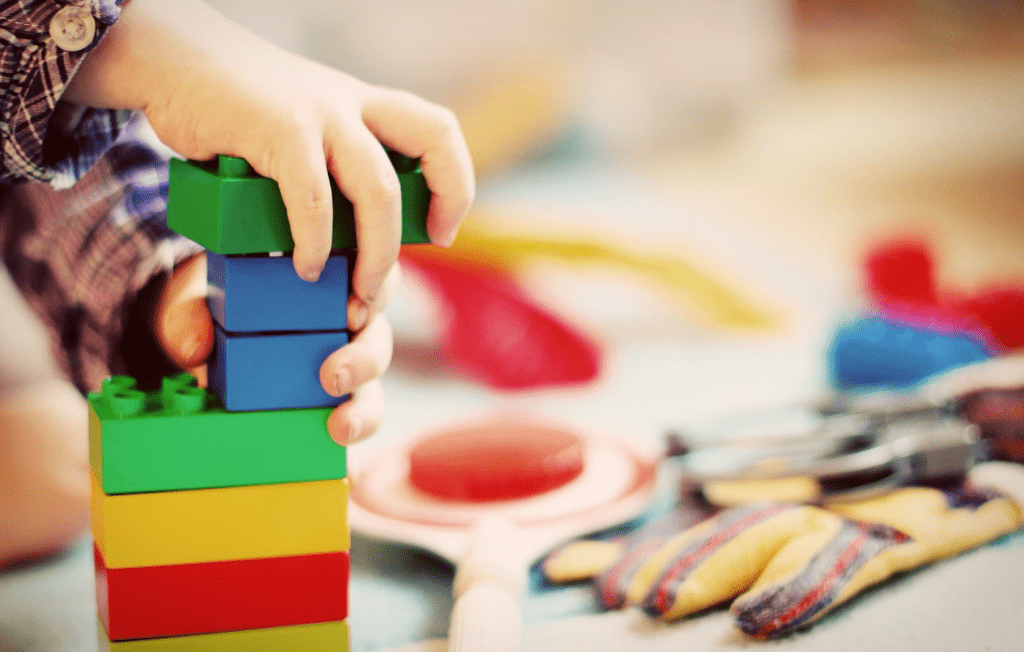When parents hear that their children need them to take charge at home, but an authoritative parenting style might be harmful, they often find themselves in a perplexing situation.
Parents may feel torn between the advice that control is beneficial and the realization that an authoritarian parenting approach could be detrimental to their children. How do parents know what’s right and when it’s right?
That’s why our research has uncovered a simpler way to consider how to raise children. It distinguishes between providing children with “structure” (healthy) and the difference made by pushing children through an authoritative parenting style (unhealthy).
What is Authoritative Parenting?
In essence, authoritative parenting is a strict approach where parents closely monitor their children’s lives and tend to set strict rules and expectations. Authoritarian parents typically enforce these rules with minimal negotiation or flexibility, prioritizing discipline over fostering independence or engaging in open communication with their children.
Distinguishing Authoritative Parenting from Providing “Structure”

Structure can include rules, guidelines, and limitations so that children know what is expected of them and the consequences of their actions. This helps them succeed in learning and avoid getting into trouble. However, structure doesn’t necessarily have to be imposed in an authoritative manner.
Structure can develop in a way that supports a child’s autonomy. Parents can collaboratively establish rules and consequences with their children. It can be an interactive process where differences are heard and discussed.
Parents can listen to critical feedback, understanding their child’s dislikes, whether it’s chores or homework. Thus, structure can support autonomy and a child’s initiative. However, rules and guidance are established ultimately, making it not just permissive. Supporting a child’s autonomy is indeed positive and doesn’t involve losing parental authority or initiative.
This approach contrasts with authoritative parenting, where children are compelled to behave in ways they may not have a say in, and parents give orders without allowing genuine input from the child. This parenting style might sometimes involve harsh discipline, including physical punishment.
How Authoritative Parenting Harms Children
Authoritative parenting can undermine a child’s self-regulation and sense of responsibility. Children may learn not how to manage their behavior but to react negatively to being controlled. This can lead them to do the opposite of what is required, not out of personal choice but in response to excessive pressure.
In our study involving 215 children and their families in Worcester, Massachusetts, we examined whether parents were authoritarian and exerted pressure or supported their children’s autonomy. We also tested whether there was structure or a lack of rules and guidance.
We were particularly interested in exploring parenting styles in communities where children face more risks. Some experts argue that in these areas, authoritative parenting is appropriate as children need protection from risks, and a supportive autonomy approach is more suitable for safer communities.
In dangerous communities, supporting autonomy is crucial

Our research found that in all communities, regardless of inherent risk levels, overly authoritative or controlling parenting increased children’s anxiety and depression. In fact, these symptoms worsened in more dangerous communities.
This may be because children in risky communities especially need a sense of competence and autonomy to solve problems and deal with difficulties. Therefore, they require a parenting approach that supports their autonomy.
Authoritative parenting can undermine autonomy and a sense of competence. However, it’s the heightened risks in some communities that may lead parents to use more pressure and less cooperation, fearing the risks their children face.
Three sources drive authoritative parenting pressures
The study highlights three pressures that might lead parents to adopt more controlling and pressured approaches—external pressure, internal pressure, and pressure from the child themselves.
Firstly, pressures from work, poverty, or relationships can divert parents’ attention, making them lacking in empathy. We found that negative life events, such as divorce, moving, and economic difficulties, were associated with authoritative parenting.
Secondly, parents may feel internal pressures where they believe they must make their children competitive in what seems like a cutthroat world, or parents’ self-esteem may depend on their child’s performance. We conducted research linking self-esteem to parents’ perceptions of their children’s performance. We then tested their interactions with their children and found they were more likely to be authoritative.
The third source of pressure for authoritative parenting may come from the child themselves. Encouraging input and autonomy is easier with children who are easy to handle and more cooperative. Studies have confirmed that parents of difficult children are more likely to be authoritative.
Helping parents understand what motivates children
How can we encourage parents to shift from harmful authoritative parenting to a supportive autonomy approach? This is a crucial question, especially for parents raising children in communities filled with risks.
To encourage this transformation from authoritative parenting, it helps to recognize that many parents inherently value their children’s autonomy. They want their children to do things they are interested in and be happy. However, under pressure, they often find themselves pushing and pressuring their children. This is similar to attitudes towards corporal punishment—many parents who spank their children do not actually agree with this form of punishment and later regret their actions, being willing to learn alternative methods.
Avoid rewarding children for activities they already enjoy
We encourage parents to use this knowledge in two ways. For activities that children enjoy, support and encourage them rather than exerting pressure. If they love playing soccer, support them rather than forcing them. When parents force and pressure, inherently motivating activities can easily begin to feel externally motivated, which can backfire, making children no longer enjoy what they once did.
However, for activities that are not inherently attractive or fun for children, it’s crucial to set some rules, expectations, and guidance. Still, these should be provided with well-discussed reasons for children to internalize them.
Parents can say, “Keeping your room tidy is essential because it helps you find your things, and you won’t attract bugs that could make you sick.” This approach allows parents to collaboratively establish rules and expectations with their children, empathizing with tasks the child may not want to do. Parents can provide choices to help avoid children feeling controlled: “Would you prefer to tidy your room on Saturday morning or after school?”

Parents need to be careful in distinguishing between activities children enjoy and those they don’t, adjusting their behavior accordingly. If parents reward children for activities they already enjoy, sometimes children may no longer want to engage in those activities.






Leave a Reply